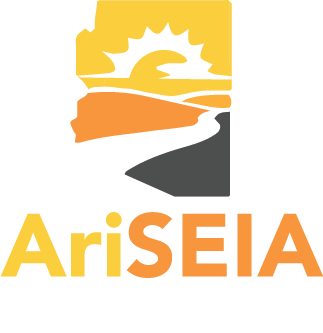|
Arizona Corporation Commission
1200 W. Washington Street Phoenix, AZ 85007 Re: Support for Approval of Revisions to Rate Schedule E-32 L SP, Docket No. E-01345A-22-0281 Chairman O’Connor and Commissioners, Vote Solar and the Arizona Solar Energy Industries Association (AriSEIA) are supportive of the Arizona Public Service (APS) Company’s Application for the approval of revisions to rate schedule E-32 L SP and encourage the Commission to approve this rate. APS’ proposed revisions are pursuant to Decision No. 78317 (November 9, 2021), which directed APS to engage in a collaborative with interested stakeholders to explore possible improvements to E-32 L SP (Large General Service Storage Pilot).[1] Following a series of collaborative meetings that took place from February to October 2022, APS has proposed revenue-neutral design changes that improve upon the Large General Service Storage Pilot rate. The Large General Service Storage Pilot rate is a pilot rate available to large commercial customers who choose to adopt energy storage systems. The purpose of E-32 L SP is to promote the economic dispatch of customer-sited energy storage systems in a manner that aligns with high peak load. To date, no customers have chosen to take service on E-32 L SP. APS’ revisions to the rate include higher energy charges during all hours and months of the year, and significantly higher energy charges during summer on-peak periods between 4:00 and 9:00 PM. Demand charges have been reduced commensurately, resulting in a rate design that is overall revenue-neutral. APS’ revisions address a flaw in the current E-32 L SP by increasing the emphasis on volumetric energy rates. As a result, the revised Large General Service Storage Pilot will provide greater investment certainty for commercial customers. Demand charges present operational challenges for customers seeking to reduce their energy bills because they are calculated based on the customers’ highest 15-minute period of energy usage throughout the month. A customer who proactively dispatches their energy storage system during all but a single 15-minute period of the month will pay a demand charge equal to what they would have paid had they not adopted energy storage at all. Demand charges can penalize customers who adopt energy efficient technology, especially new and unfamiliar technology, because it is challenging to forecast savings and there is significant risk that small changes in operation of the energy storage system could threaten forecasted savings. In contrast, emphasis on volumetric rates gives customers the opportunity to save money on their utility bill in a manner that is proportional to the benefit they are providing through dispatch of energy storage during times of peak load. APS’ proposed revisions - particularly the increases in the summer on-peak energy rate from 6.5 cents per kilowatt-hour to 17.6 cents per kilowatt-hour - maintains a strong price differential that will encourage the dispatch of customer-sited storage during periods of high load in the summer. We recommend one additional change to the E-32 L SP tariff. While the current tariff defines the on-peak period as 4:00 to 7:00 PM on weekdays, the revised tariff re-defines the on-peak period as 4:00 to 9:00 PM every day. We recommend narrowing the on-peak window to weekdays, as this better aligns with the hours when APS is most likely to experience high customer load and normal hours of business operations. The Commission could direct APS to evaluate this change as part of their current rate case in Docket No. E-01345A-22-0144. We do not wish this evaluation to delay approval of the revised tariff at the May 2 Open Meeting. Arizona is poised to lead on the adoption of distributed battery storage through the development of rates that encourage economically efficient adoption of customer-sited batteries. Increased adoption of customer-sited batteries gives utilities an additional tool to flexibly and cost-effectively meet their customers’ energy needs and can provide significant cost and grid resilience benefits for all ratepayers. We appreciate APS’ efforts to work with stakeholders to improve the E-32 L SP tariff. We urge the Commission to approve APS’ Application today and consider whether changes to the on-peak hours are warranted through evaluation as part of APS’ rate case. Thank you for your consideration of this important matter. Respectfully, Kate Bowman Interior West Regulatory Director Vote Solar [email protected] 703-674-8637 Autumn Johnson Executive Director AriSEIA [email protected] 520-240-4757 [1] Decision No. 78317, November 9, 2021, page 441 lines 15 - 21.
0 Comments
Leave a Reply. |
AriSEIA NewsKeep up with the latest solar energy news! Archives
July 2024
Categories
All
|
NEWS
See what AriSEIA is up to on the policy front.
The Arizona Solar Energy Industries Association (AriSEIA) is a 501(c)(6) non-profit trade association representing the solar, storage, and electrification industry, solar-friendly businesses, and others interested in advancing complementary technologies in Arizona. The group's focus is on education, professionalism and promotion of public policies that support deployment of solar, storage, and electrification technologies and renewable energy job growth and creation. |
FOLLOW Us |
Copyright © 2019 AriSEIA - All Rights Reserved

 RSS Feed
RSS Feed
